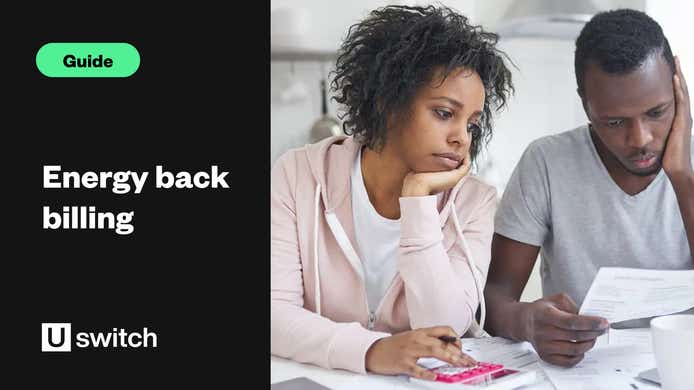If you think you’re being overcharged by your supplier, you’re not alone. But how can you tell, and what can you do about it?
1: Read your energy meter
The simplest way to avoid being overcharged by your supplier is to make sure you don't give them a reason to estimate.
Bill estimation makes it likely you'll be overcharged to ensure you don't fall behind on your payments.
Luckily, stopping estimated billing is as easy as reading your meter regularly and updating your supplier. If you're on a standard variable tariff, you'll be subject to the price cap changing every three months, so it's important to submit a reading on the day the cap changes to ensure you're being charged the right prices for the right periods.
For standard meters, just read the numbers on your meter, noting down all numbers except those highlighted in red or after the decimal point, and record the date.
Submitting your reading varies from supplier to supplier, but most big suppliers let you submit your meter readings online or using smartphone apps, making it easier than ever.
Those already using smart meters don't have to worry about estimated billing as the energy supplier can track your exact usage and bill accordingly.
All UK homes should be offered a smart meter by the end of 2025, so in the future, bill estimation should be a thing of the past.
If you're not sure whether your supplier uses estimated billing, just look for the word 'estimated' on your bill, or call your supplier.
2. Pay attention to exit fees
Exit fees are used by energy suppliers to ensure you stay with them for a fixed duration — just like a penalty fee on a mortgage. They are usually applied to fixed rate tariffs, where you receive a fixed rate for a given period of time. However, exit fees may also apply to variable tariffs, so make sure you read the fine print before signing up for a new deal.
Exit fees allow suppliers to guarantee a fixed number of customers for the duration of a plan, so they can calculate how much to charge on that plan to make it both competitive and profitable. However, exit fees limit your options when it comes to switching away, particularly during a price cut.
Uswitch will list the exit fee (also referred to as a cancellation fee) in the plan details section of your comparison results, so you should calculate this cost when considering whether to switch. For example, a plan without an exit fee may be a better bet over the long term, even if it is more expensive now.
It is worth noting that energy companies are not allowed to charge you exit fees or any other financial penalty in the event of a price increase. If your supplier tries to charge a fee or, if you want to move supplier, charge you at the new higher rate until you have switched, you should complain.
3. Regularly compare energy prices
Energy suppliers rely to a large degree on customers who don't search the markets for cheaper deals, even though their prices are going up. Two identical homes, using identical energy, can easily be paying very different amounts for their energy due to the supplier they are with, or the tariff or plan they are on.
While switching hasn't been possible for the past couple of years, deals are starting to return to the market. While it may still be cheaper for some customers to remain on a standard variable plan rather than switch to a fix, it's worth running regular energy comparisons just to be sure.
4. Don’t put off switching
Too many consumers think of switching energy supplier as a difficult and lengthy process that will end up costing them more, but that isn't the case.
More than 200,000 people switched over the summer of 2023 as deals began to return to the market using just their postcode and plan name. With the energy market still unpredictable, deals can disappear as quickly as they appear, so if there's a deal that looks good for you, it's important to act fast before it's taken off the market.
5. Complain, especially if you get a big bill
If you feel your energy supplier is overcharging you — if you receive a particularly large bill after a price rise or a large estimated bill — you should contact your supplier to ask about it.
Your supplier is obliged to treat your complaint fairly by the energy regulator Ofgem, but if you are still getting nowhere don't give up. If you don't get a response within eight weeks you can take your complaint to the Energy Ombudsman, which will look into your dispute. For more information, check out our guide on how to make a complaint about your energy supplier.




